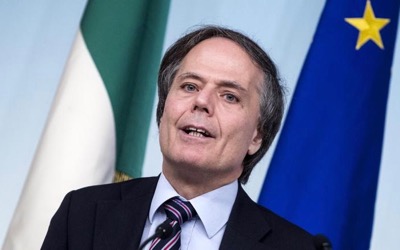
The Italian government announced that it vetoed the EU’s recognition of Juan Guaidó as the “Acting President” when the Council of Foreign Ministers met in Romania on 31 January 2019.
Despite this, the governments of Spain, the United Kingdom, Sweden, Denmark, France, Holland and Portugal, lined up to recognize Juan Guaidó as the “President in charge of Venezuela”, borrowing the language adopted last Monday by Spanish Prime Minister Pedro Sánchez.
During the legislative elections held in Venezuela in 2015, the Opposition to President Nicolas Maduro obtained a substantial majority in the National Assembly. However, in the 2018 Presidential elections, Nicolas Maduro was re-elected once again. This created a situation in which there were two bases for legitimacy, a situation unforeseen by the constitution. Refusing to accept the situation, the Opposition declares that the Presidential Election had been “rigged”, as even through the constitutional arbiter was the National Electoral Council, which was composed of the same persons that had certified the victory of the opposition in the 2015 legislative elections.
Furthermore, the opposition then latched onto article 233 of the Constitution to declare that the President of the National Assembly, Juan Guaidó, automatically becomes the acting president of Venezuela. However, this is false given that this article provides that the President of the Legislature only assumes the exercise of executive power in the event of an absence proved and duly certified by the President of the Republic for reasons such as physical incapacity or death.
The United States is exploiting the internal conflict between the opposition and the Chavistas to create conditions to justify a foreign military intervention against the Bolivarian State.























Stay In Touch
Follow us on social networks
Subscribe to weekly newsletter